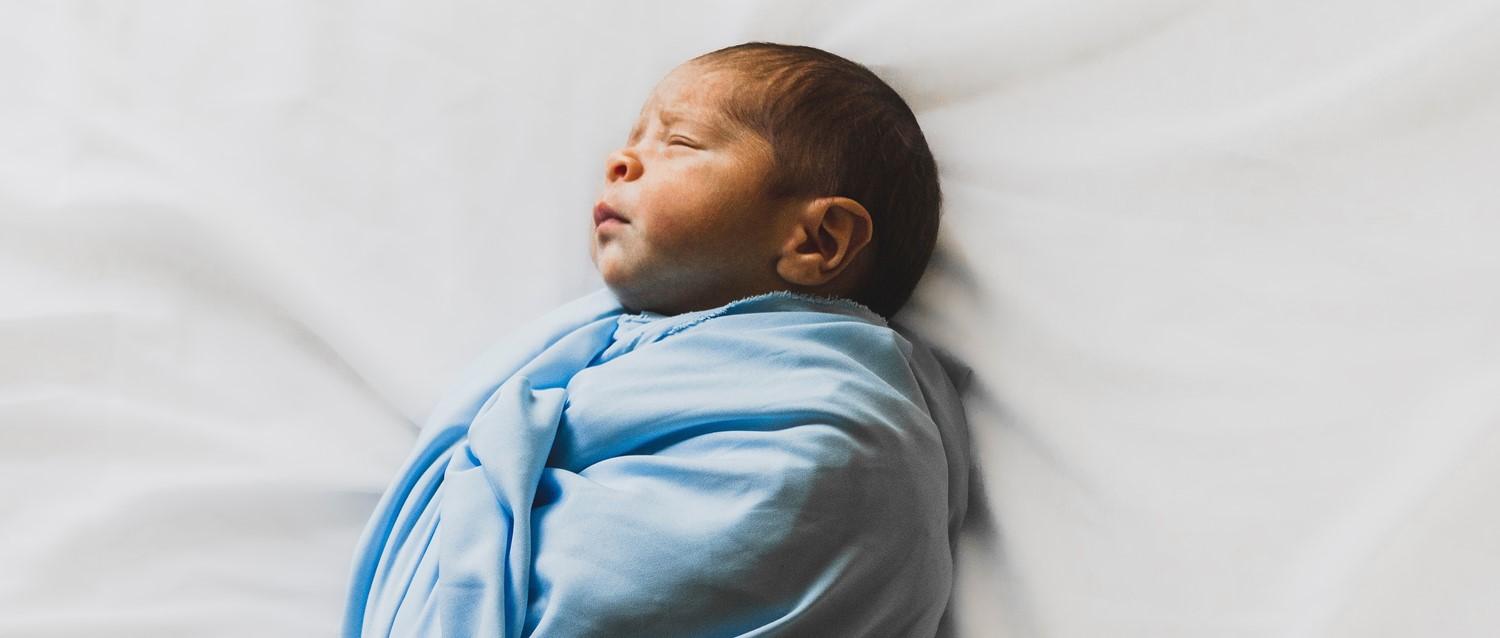
When should your baby's bedtime be?
Peer reviewed by Dr Sarah Jarvis MBE, FRCGPLast updated by Amberley DavisLast updated 4 Mar 2022
Meets Patient’s editorial guidelines
- DownloadDownload
- Share
- Language
- Discussion
We all know how important sleep is for a baby's health and development. It is natural for their sleep to come in short bursts throughout the day and night. At what age do experts recommend introducing your baby's bedtime, and what time should this be?
In this article:
Continue reading below
Why is sleep so important?
There is plenty of evidence on the importance of sleep for babies (and indeed for all ages). Included in the long list of benefits are cognitive development, physical growth, and a healthy immune system.
A lack of sleep, on the other hand, can hinder mental and physical development. It has also been linked to negative health outcomes including ADHD, childhood obesity and cardiometabolic conditions such as stroke and type 2 diabetes.
However, the idea that good sleep is made up of long stretches of uninterrupted night-time sleep isn't applicable to newborn infants. Their sleep is distributed throughout the day and night in shorter periods. While for parents this may take some getting used to, this newborn sleeping pattern is both natural and healthy.
Newborn sleeping patterns
There can be a big difference between how much sleep one newborn baby gets compared with another, and also how long they sleep for at a time. Experts expect young babies to sleep anywhere between 11 and 17 hours in a 24-hour period and they estimate sleep periods to last between 30 minutes and three hours.
Evidence shows that parent-baby interactions can influence a baby's bedtime. This is because sleep is biopsychosocially influenced; controlled not only by biological factors but also social and psychological aspects.
Regardless of these variations in newborn sleeping patterns, it's likely that your newborn will wake and cry several times during the night. While this can be exhausting, it's important to remember that this behaviour is normal and healthy, typically being driven by hunger.
Continue reading below
Baby bedtime expectations
In the early days, this newborn sleeping pattern of day-sleeping and night-waking tends to render the concept of baby bedtime non-existent. Although this is an adjustment for any parent, the key is not to worry about this. A consistent bedtime can be introduced when an infant is around 12 weeks old.
This is because it can take roughly this long for babies to develop the biological functions that enable us, as humans, to fall asleep at night and stay awake throughout the day.
Developing an internal body clock
Newborn babies don't have a fully functioning circadian rhythm until they're about 12 weeks old. Our circadian rhythms (or internal body clocks) drive our day-to-night sleep cycle, as biological activity - influenced by daylight and darkness - shifts us between alertness and sleepiness.
For example, our internal body clocks control:
Melatonin - known as the 'sleepy hormone', the brain is triggered to release melatonin in the evening when darkness falls, causing tiredness. Babies don't start producing this hormone until roughly nine to 12 weeks of age.
Body temperature rhythm - body temperature drops at night which paves the way for sleep. This function also doesn't emerge in babies until around eight to 12 weeks.
When to start a baby bedtime routine
With this in mind, it's important not to place unrealistic expectations on newborn babies to sleep through the night or to follow a set bedtime. The biggest factor guiding newborn sleeping patterns is the need to feed - in their first month, this is typically between 8 and 12 times in a 24-hour day.
As such, the time your newborn will be ready to sleep each evening is subject to change. Every baby is different, but the average 'normal' young baby's bedtime can be anywhere from 7:30-11:00 pm. Once their circadian rhythm starts driving sleep, it will be much easier to establish an earlier and consistent bedtime.
Continue reading below
When to change a baby's bedtime
Generally, if a newborn is into a pattern of staying up throughout the evening with no sleep intervals until the early hours, it may indicate that there is a problem. A newborn's sleeping pattern should include relatively short awake periods rather than long.
Firstly, check that their surroundings aren't too stimulating - a lot of light and noise can be distracting. Alternatively, a baby may find it hard to sleep if they are over-tired or if they're unwell.
A baby with colic may well find it impossible to settle until late in the evening. Given that colic is often accompanied by inconsolable crying, this can be exhausting and draining for parents as well as children. It's important to be aware of all the colic-related 'red flag' features that suggest your baby doesn't have a serious underlying condition.
If they don't, there are many steps you can take to soothe them, or to help yourself cope. While it may seem like an interminable problem, colic does usually settle by the time your baby is 3-4 months old, and has almost always resolved by the time they're 6 months old.
Creating a baby bedtime routine
Your baby may not be able to follow a strict bedtime for several months, but that doesn't mean that there aren't benefits to establishing a calming baby bedtime routine early on. The right evening environment can still promote tiredness:
Dimmed lights - even though a newborn baby's body clock is under-developed, research shows that infants are responsive to light from a very early age and that low-intensity lighting/darkness at night can help regulate the developing clock.
Calm and quiet environment - prolonged periods of crying in the evening can trigger cortisol production - a stimulating hormone that's linked to stress. It drives the body's fight-or-flight response which prevents us from being able to sleep.
It can be beneficial to get into a routine of choosing the same three soothing activities each night. Establishing this pattern will not only make creating a baby bedtime easier down the line but can provide some much needed calm for tired parents of newborns.
This could include:
Giving your baby a bath.
Putting their pyjamas on.
Cuddle or massage time.
Singing them a lullaby.
There's also no harm in teaching your baby the difference between daytime and night-time from an early stage. During the day, play games and let in natural sunlight. Try not to worry about keeping daily noises down, even while they sleep.
Patient picks for Baby and toddler

Children's health
How to keep your baby safe and warm in winter
When you are pregnant, you count the days until your baby is in your arms. Then suddenly, they're here, and you're in charge of this precious bundle who depends on you for everything. How do you keep them safe? How do you know when they're too hot, too cold, too hungry, too unwell? The unexpected can always happen, but these tips will mean you're as prepared as you can be to help your baby thrive over the winter months.
by Dr Sarah Jarvis MBE, FRCGP

Children's health
What are the benefits of baby probiotics?
If you search for baby probiotics in shops and online you will find a wide range of products. What do these supplements claim to do, and are these claims supported by evidence?
by Amberley Davis
Continue reading below
Article history
The information on this page is peer reviewed by qualified clinicians.
4 Mar 2022 | Latest version
4 Mar 2022 | Originally published

Ask, share, connect.
Browse discussions, ask questions, and share experiences across hundreds of health topics.

Feeling unwell?
Assess your symptoms online for free